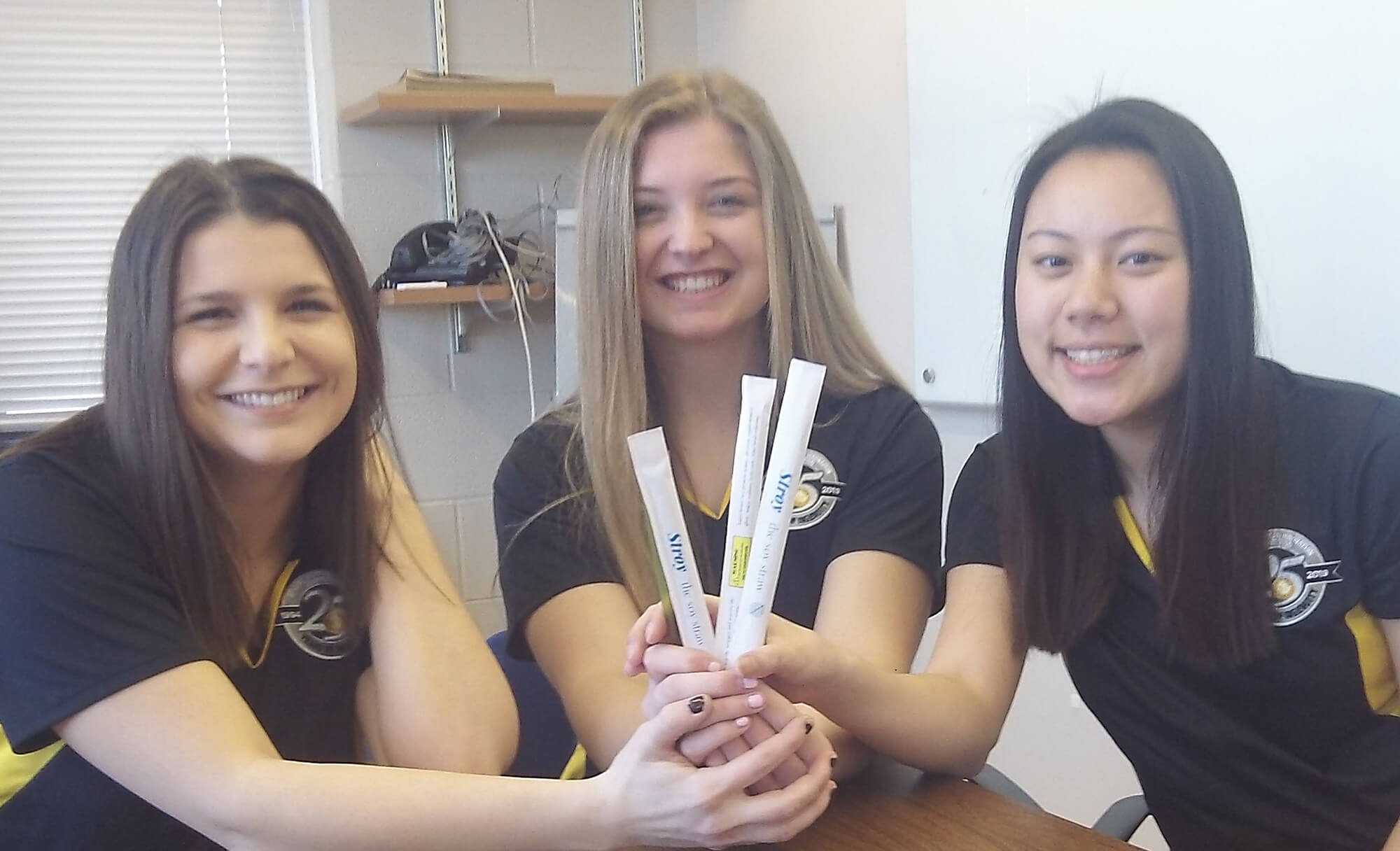Plastic Straws Suck: Students Invent Soy Ones
 Team Stroy won the Student Soybean Product Innovation Competition (left to right: Morgan Malm
Team Stroy won the Student Soybean Product Innovation Competition (left to right: Morgan Malm
Subscriber Benefit
As a subscriber you can listen to articles at work, in the car, or while you work out. Subscribe NowAmid the uproar about plastic straws—including bans or pending bans in several U.S. cities—sales for paper straws are booming. But a trio of Purdue University students has a far more disruptive idea: soy straws that are 100 percent biodegradable. The team captured the $20,000 top prize at the annual Indiana Soybean Checkoff competition, where students harvest new ideas that will drive consumption of the crop. Like Boilermakers before them, they may have engineered an idea to slurp up the competition.
The trio invented a soy drinking straw, called a “stroy,” that team member Ruth Zhong says outperforms paper straws, the leading alternative to plastic straws. Walking by a campus trash can overflowing with plastic drinking cups and straws sparked Zhong’s light bulb moment. Plastic straws are the target of sweeping disdain; experts say Americans alone use 500 million straws in a single day that, ultimately, pollute oceans.
Zhong says the team’s soy straws are environmentally friendly because they’re biodegradable, and compared to paper straws, last longer in liquids. McDonald’s restaurants in the U.K. faced backlash when customers complained that new paper straws were becoming mushy in their milkshakes and dissolving in their drinks.
“Our soy straw is more plastic-feeling than a paper straw, because we coated it to give it more of a plastic-like feel,” says Zhong, who graduated this spring with a bachelor’s degree in electrical engineering. “If you compare our soy straws to paper straws, they last longer in liquids and hold their shape; paper straws can get a little soggy.”
Zhong recognized her electrical engineering expertise and the business skills of teammate Natalie Stephenson—who graduated this spring from the Krannert School of Management—left a gaping hole in the food science know-how to bring their idea to life. The team recruited Morgan Malm, who is working toward a PhD in food science at Purdue.
They worked in the lab to create a soy-based water solution, which was the building block to make films that they could shape into straws. Team Stroy says their straws are also food safe and even edible.
“Making a soy base or film that we knew could be shaped, but also hold its form—that was tough,” says Zhong. “After we got that down, then it was pretty difficult to find some coating or ingredient we could put on the straw to hold up in liquid, because our solution was water-based. But we also needed something that could retain its shape in water, or it wouldn’t be very useful as a straw.”
The team believes soy straws also have commercial viability; while it’s hard to beat plastic straws—which cost about half-a-cent per unit—Zhong says soy straws could likely sell for the same price as paper straws, which are about 2.5 cents each.
The Indiana Soybean Alliance (ISA) is now working to further develop the straws and evaluate long-term feasibility and commercial potential; a patent application is currently being processed. The team is hopeful it could follow in the footsteps of previous winners, such as a student who developed soy candles—setting the standard for the now wildly popular product. It was ISA’s first major commercialized product, and the organization now holds six patents on soy wax in candles.
The competition awarded the second-place $10,000 prize to Team Soy Seal, for making a wood finish using soy nanocellulose.
ISA and Purdue have created programs that encourage student inventors to remain involved as their ideas progress toward commercialization—taking advantage of two Hoosier commodities: soybeans and innovative Purdue students capable of sprouting big ideas from a humble bean.
Zhong says the timeliness of the team’s idea and passion for the project helped them claim top prize.
Zhong says her dislike for paper straws and her desire to use less plastic motivated her to help develop the soy straws.
